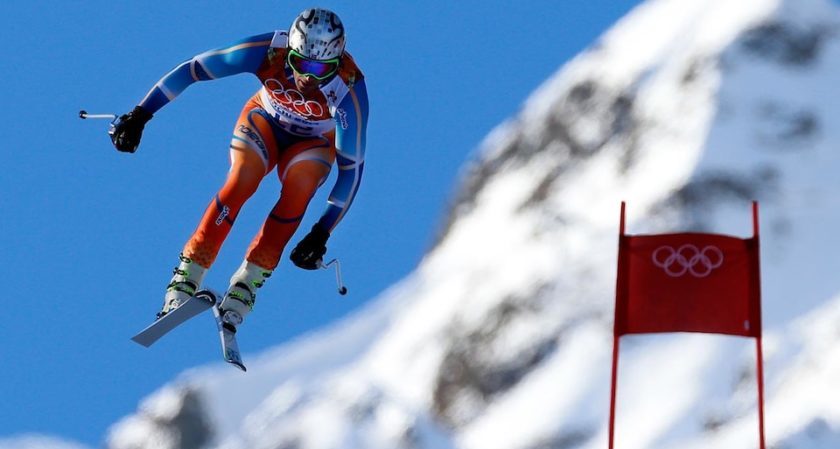M+E Connections

Discovery, NBC Report Strong Olympics Viewership Results
Story Highlights
Discovery Communications and Comcast’s NBCUniversal division reported strong viewership data for their coverage of the Olympics Winter Games from PyeongChang, South Korea.
“We succeeded in our goal of making this the most digitally expansive and accessible Olympics in Europe yet as we aired every minute of every competition, leveraging” Discovery’s broadcast networks, Eurosport pay-TV channels and app and other Discovery platforms, David Zaslav, Discovery Communications CEO and president, said Feb. 27 on an earnings call for his company’s fourth quarter and fiscal year (ended Dec. 31).
Discovery achieved “record ratings across our linear services” with the Olympics and “drove significant” over-the-top (OTT) “subscriber gains,” he told analysts. In all, Discovery “delivered 4.5 billion video views and 1.7 billion hours of video to a cumulative 386 million users over the course of the games, with Discovery and Eurosport’s digital and social platforms, including the Eurosport Player [app] reaching an incredible 76 million viewers,” he said.
Prior to the Olympics in February, Discovery “surpassed the 1 million subscriber threshold” for its Eurosport Player app, he said, noting: “Since then, we expanded the combined reach of our Eurosport and Dplay direct-to-consumer offerings by almost half a million subscribers” during the Olympics.
“While some of these subscribers will likely turn off in the weeks and months ahead, we feel great about the added brand awareness and engagement we’ve achieved with passionate sports fans across the region, as well as” the “opportunity” Discovery now has “to cultivate these connections going forward,” he said, adding: “We have their names, we have their credit cards and, most importantly, we have the data on the sports that they’ve watched and what they’re passionate about.”
The rights that Discovery acquired to broadcast the Olympics in Europe didn’t come cheap. But the Olympics “will be around break even” for the company for all of 2018 and are “expected to be cash-flow positive over the life of the rights through 2024,” Discovery CFO Gunnar Wiedenfels said on the call. The 2018 Winter Games alone cost the company around $240 million, including $140 million for the rights and $100 million for production and other expenses that will largely be recognized in Discovery’s first quarter, he said.
Separately, NBCUniversal reported that NBC Olympics coverage reached a total of 19.8 million viewers, and its primetime performance “more than doubled the combined primetime viewership” of ABC, CBS and FOX (9.8 million) during the Olympics period. The NBC-only primetime average viewership of 17.8 million, meanwhile, “beat by 82% the average of the combined broadcast networks to rank as the most dominant Winter Games on record,” it said in a news release Feb. 26, one day after its Olympics broadcast coverage ended.
NBCUniversal presented a record 2,400-plus hours of Winter Games coverage in all, it said, pointing to several other achievements, including: the PyeongChang Olympics “helped solidify NBC’s rank as No. 1 in total viewers at any point during the TV season for the first time since it won the 2001-02 crown 16 years ago,” according to Nielsen data; and NBC Olympics averaged Total Audience Delivery (TAD) of almost 20 million viewers in primetime over 18 nights, according to Nielsen and Adobe Analytics.
NBC Sports Digital, powered by Playmaker Media, “live streamed every event” of the PyeongChang Olympics through NBCOlympics.com and the NBC Sports app, and presented the first-ever live stream of an Olympics Opening Ceremony, the company said.
Pointing to other digital achievements, it said: NBC Sports Digital live streamed 1.85 billion minutes — “more than four times the 420 million minutes” for the Sochi Games; NBC Sports Digital’s total 17 billion streaming minutes “more than tripled” Sochi; on Feb. 11, NBC Sports Digital “set a single-day Winter Games record with 176.3 million live stream minutes”; and on Feb. 21, more than 525,000 unique viewers watched the live stream of the U.S.-Canada women’s gold medal hockey game, “to rank as NBC Sports Digital’s fifth-largest hockey audience ever, beating all NHL, IIHF, and college hockey games, and trailing only four high-profile games from the Sochi Olympics in more favorable time periods.”
Discovery Communications, meanwhile, reported Q4 revenue grew 11% from a year earlier, to $1.86 billion. But it swung to a $1.14 billion loss from a $304 million profit, due in part to costs related to its acquisition of Scripps Networks Interactive, it said. That planned purchase passed a major regulatory milestone as Discovery said the U.S. Justice Department closed its investigation into the merger.
Discovery still sees “opportunities” for it to “either compete” with the five “big global platform companies” — Amazon, Apple, Facebook, Google and Netflix – or to “piggyback on those platforms,” Zaslav also said on the call.
There’s also still “a big need in the U.S. for a low-priced” OTT “skinny” TV bundle, he said, telling analysts: “After we close on Scripps, we’ll be looking very hard at what we have ourselves and we’ll be talking to customers about what kind of opportunity there is to create an offering either ourselves or with others” in the U.S. and other markets. “We could create a pretty compelling offering for $6, $7, $8 that would look a lot different than Amazon Prime, a lot different than Netflix, and it could be very attractive in every language globally,” he said.
Although Discovery networks are offered as part of AT&T’s DirecTV Now and Sony’s PlayStation Vue skinny OTT bundles, they are still not available on Dish Network’s Sling TV, Hulu with Live TV or Google’s YouTube TV, he also pointed out. Discovery’s goal, however, “is to be carried on every platform,” and it continues to talk to the skinny bundle providers it’s not being offered on yet, he said.









